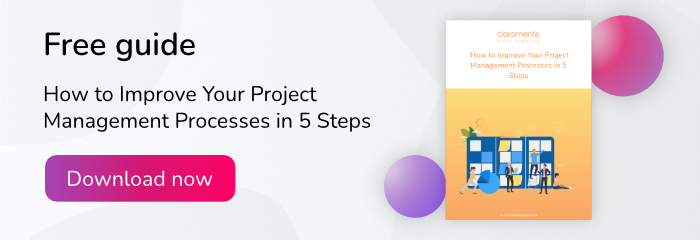It’s a fact that some projects don’t always progress as planned. Even with perfect planning and a timeline for each part of the project, unexpected things can happen. Perhaps a client hasn’t sent the necessary information on time. An employee is absent through illness. A technical issue means you must rethink your strategy.
It can quickly cause severe problems for your project if everyone is relying on a spreadsheet for time tracking and email communication for updates. For this reason, project management tools for marketing agencies are fast becoming a must-have.
Indeed, it’s increasingly important in digital workplace environments to be able to track tasks, budgets, and the timeline of projects to ensure there are no errors or delays.
It’s also important that the software is easy to use. There’s little point in spending your budget on project management software if nobody fully understands how to use it. Employees won’t actually want to use your agency’s project management tools if it’s too complicated. You need to strike a fine balance between functionality and ease of use.
Every organisation is different. This equates to everyone needing different types of project management tools. Before investing in project management software, you need to sit down and work out the prime needs of your organisation to ensure the correct processes are put in place that will enhance your day-to-day operations.
What should you consider when installing project management tools for marketing agencies?
First, consider whether your agency is expanding. If the company is growing rapidly and you’re expecting this to continue, choose tools that can grow with you. There’s no point in spending money on a system that will be out-of-date in a few months.
Secondly, is your choice of software user-friendly? Will it be simple enough for employees to use the interface for such tasks as scheduling projects and keeping up to speed with clients’ demands? Similarly, are the project management tools flexible so that they will integrate easily with any other software used by your agency?
Consider whether you will be able to customise it. Consider which features you will use most often and make sure the software allows you to customise them to your needs for each project. If you need to collaborate with your clients on the platform, make sure the software allows you to do this with ease.
Finally, software that facilitates project management for agencies specifically must include the features that are relevant to your needs, rather than one that does everything. The idea is to make all your projects simpler to manage, so it’s counter-productive to install a system that has a lot of unnecessary features.
Which project management software features are essential?
When considering new project management software, you’re likely to require a number of specific functions. These include client management, accounting, media, creative, production, traffic, and new business sections. Bringing all of these tasks together into one collaboration platform will make everyone’s lives much easier.
Ideally, project management tools for marketing agencies should provide the following features:
- Allow you to see all the prospects that the agency has in the pipeline
- Create new accounts
- Organise billing
- Create templates for producing accurate estimates
- Track the progress of your current projects
- Allow file sharing
- Schedule and assign tasks
- Manage individual workloads
- Create financial reports
Why is collaboration and knowledge sharing important?
One important function of project management tools for marketing agencies is to create a platform for collaboration. This will enable the relevant employees to share their inspiration and ideas when creating new marketing or advertising campaigns.
File sharing is vital. In addition, it’s useful to have a centralised feedback system. This will enable everyone working on the project to comment and share their thoughts. It will also show who has reviewed or approved any updates. All employees working on the project need to be automatically notified of any updates, to avoid a situation where a manager is having to personally notify everyone.
An interface which allows project managers to adjust the timeline and the requirements – based on how the project evolves – is also useful. This covers the situation described earlier when there are unexpected hitches, such as a client not sending in information on time, or a key employee suddenly being absent through illness, for example.
A dashboard can be installed to enable managers to see, at the click of a mouse, every project’s progress, including the timescale, expenses, and fees. In addition, managers need to see how the teams are performing in relation to goals and to identify any projects which are not progressing as they should be, in order to quickly resolve any issues.
If teams are working from different locations, a project management tool is required that will bring together the remote workers. The software also requires a function whereby private messages can be sent to groups or individuals when required.
Once you have established your requirements, you can install project management software that will make everyone’s life easier. Employees will perform better and feel more valued if the project management tools are geared up to meet their specific requirements, leading to greater productivity and profitability.

![[FREE GUIDE] How to Improve Your Project Management Processes in 5 Steps](https://no-cache.hubspot.com/cta/default/5025095/39f7568f-5072-4c75-b782-89ea84fe2a87.png)




